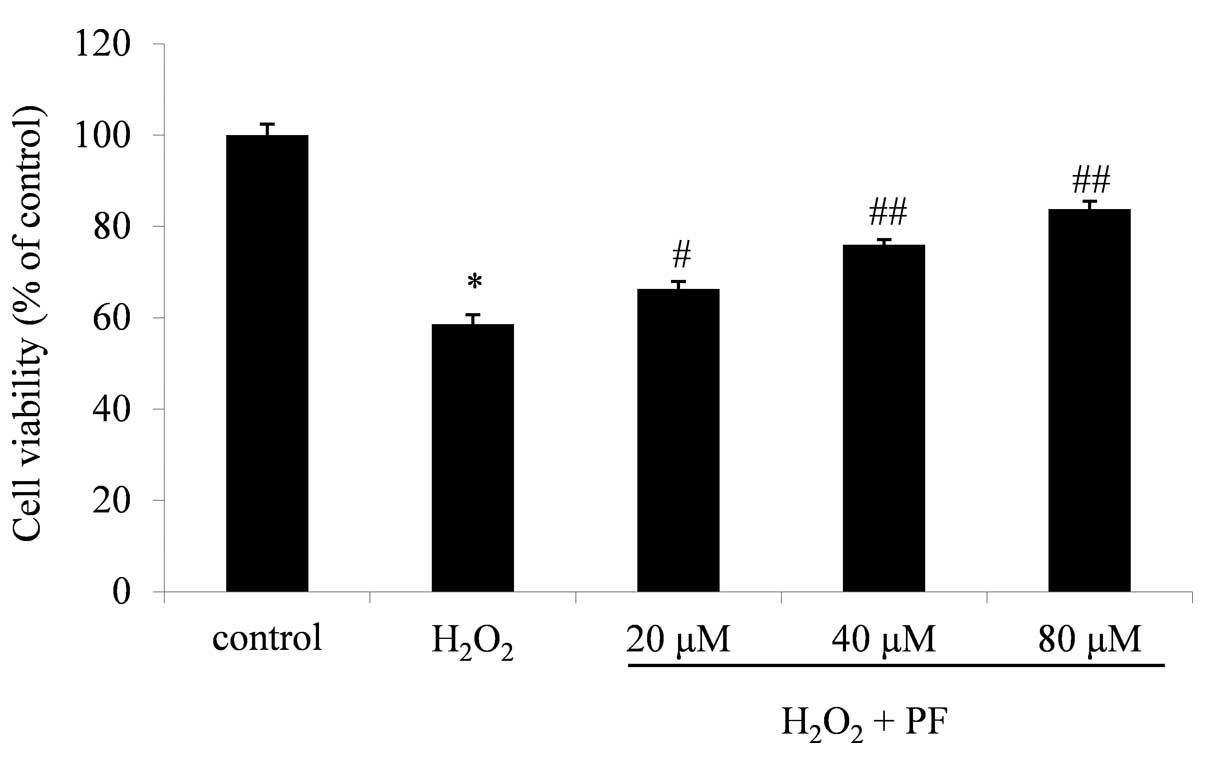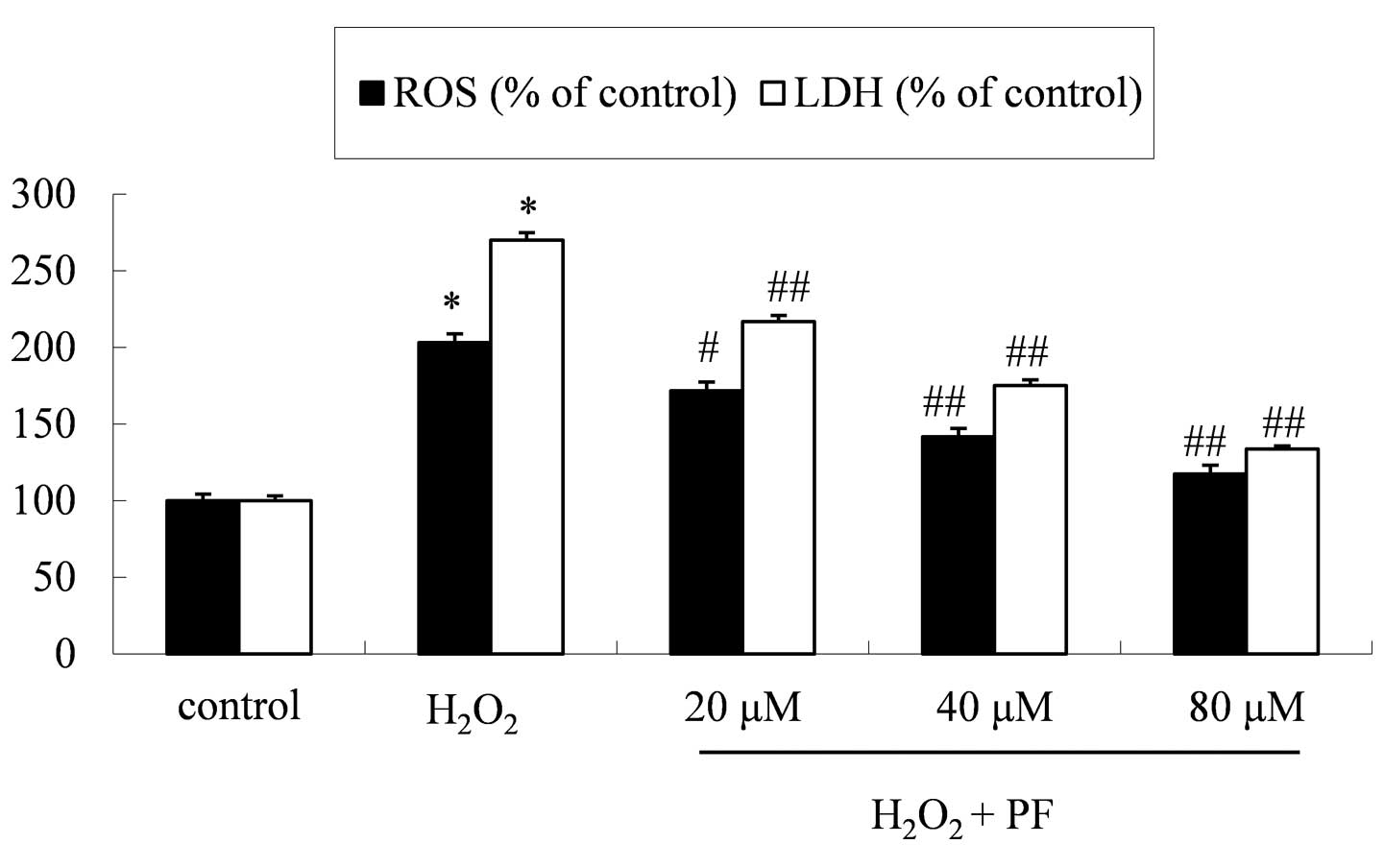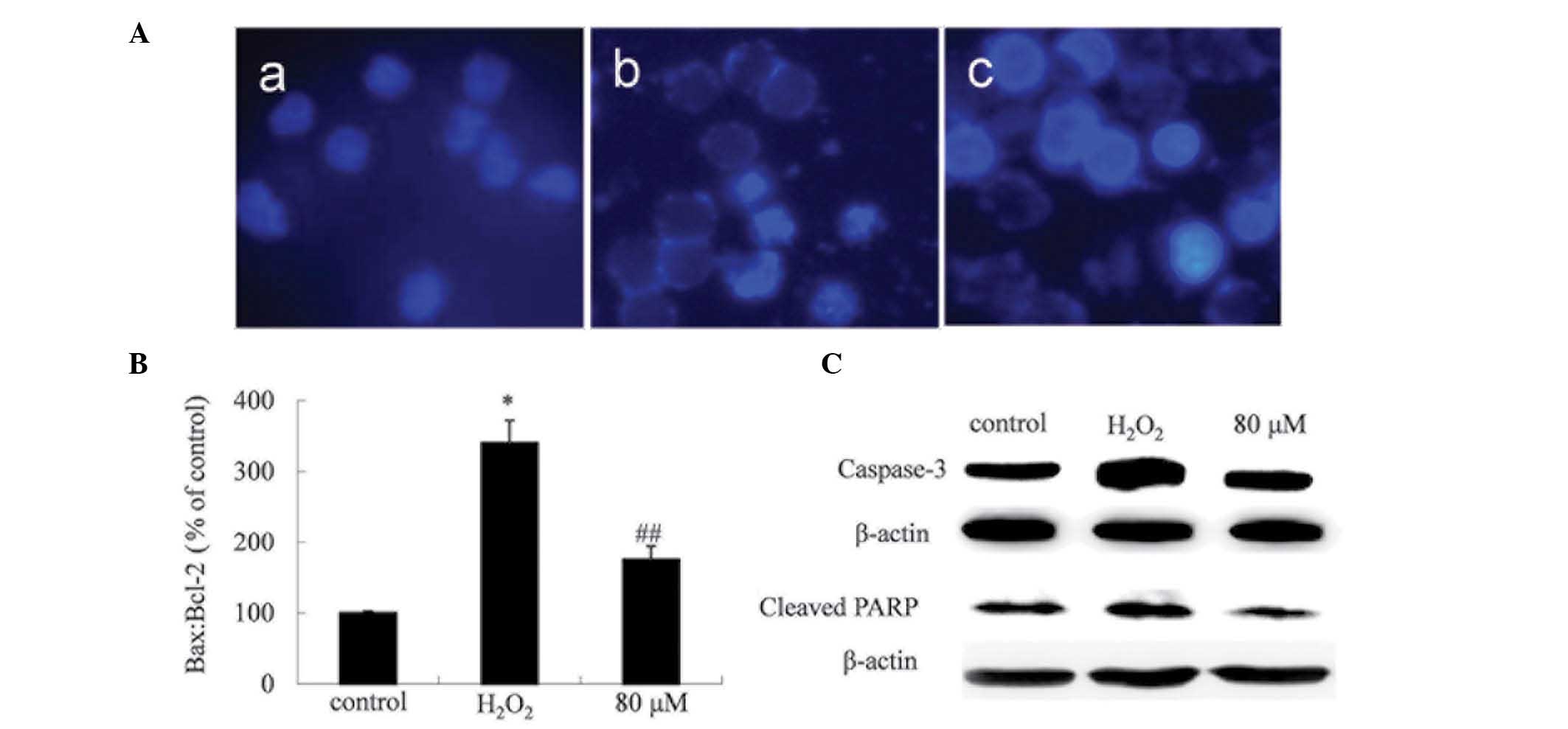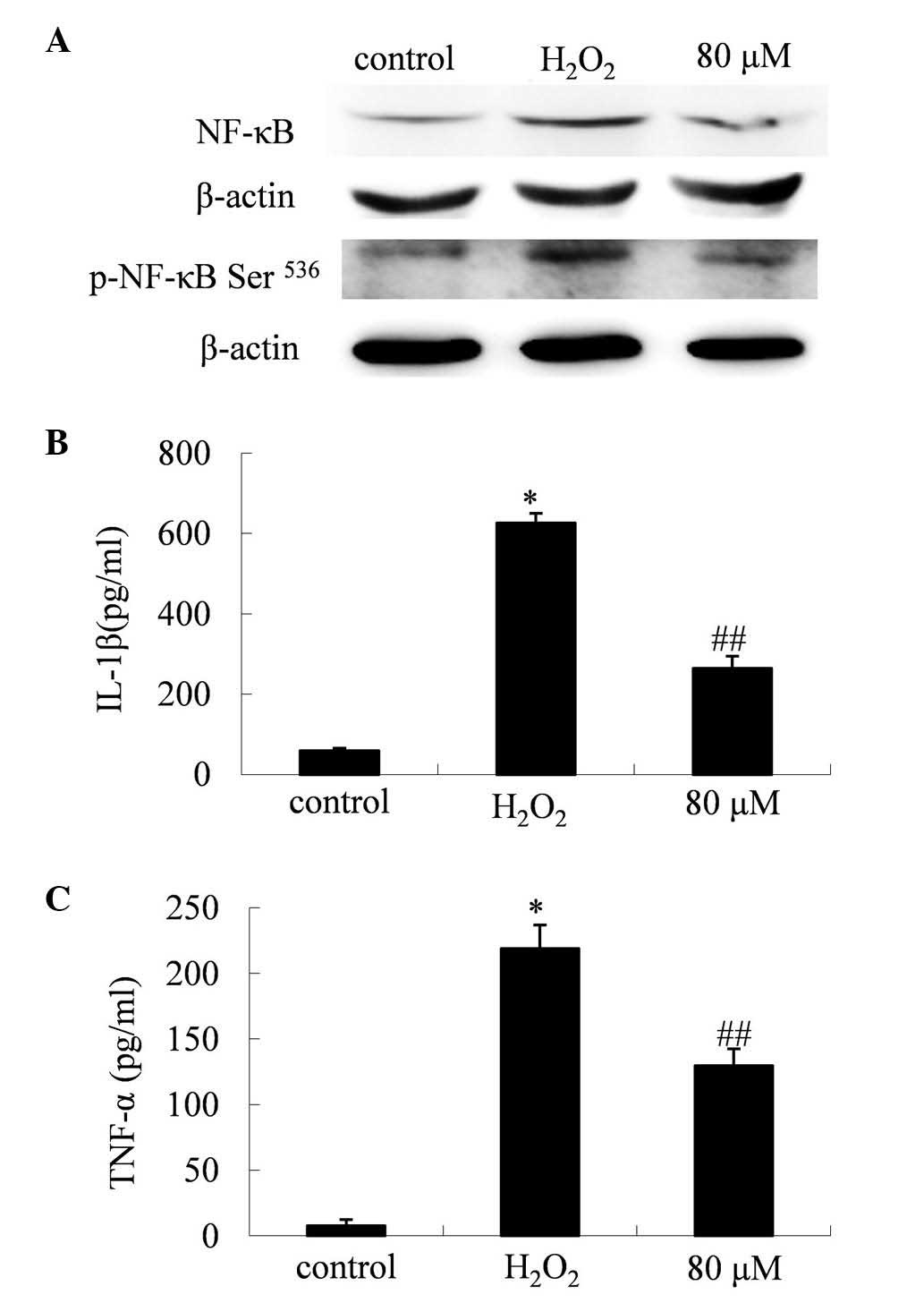|
1
|
Liu HQ, Zhang WY, Luo XT, Ye Y and Zhu XZ:
Paeoniflorin attenuates neuroinflammation and dopaminergic
neurodegeneration in the MPTP model of Parkinsons disease by
activation of adenosine A1 receptor. Br J Pharmacol. 148:314–325.
2006. View Article : Google Scholar : PubMed/NCBI
|
|
2
|
Liu DZ, Xie KQ, Ji XQ, Ye Y, Jiang CL and
Zhu XZ: Neuroprotective effect of paeoniflorin on cerebral ischemic
rat by activating adenosine A1 receptor in a manner different from
its classical agonists. Br J Pharmacol. 146:604–611. 2005.
View Article : Google Scholar : PubMed/NCBI
|
|
3
|
Tang LM, Liu IM and Cheng JT: Stimulatory
effect of paeoniflorin on adenosine release to increase the glucose
uptake into white adipocytes of Wistar rat. Planta Med. 69:332–336.
2003. View Article : Google Scholar : PubMed/NCBI
|
|
4
|
Kapoor S: Neuroprotective effects of
paeoniflorin: An emerging concept in neurology. Folia Neuropathol.
51:922013. View Article : Google Scholar : PubMed/NCBI
|
|
5
|
Hsieh HL and Yang CM: Role of redox
signaling in neuroinflammation and neurodegenerative diseases.
Biomed Res Int. 2013:4846132013. View Article : Google Scholar : PubMed/NCBI
|
|
6
|
Jia BS and Gao Y: Protective effect of
trihexyphenidyl on hydrogen peroxide-induced oxidative damage in
PC12 cells. Neurosci Lett. 437:50–54. 2008. View Article : Google Scholar : PubMed/NCBI
|
|
7
|
Dasgupta A, Zheng J and Bizzozero OA:
Protein carbonylation and aggregation precede neuronal apoptosis
induced by partial glutathione depletion. ASN Neuro. 4:e000842012.
View Article : Google Scholar : PubMed/NCBI
|
|
8
|
Sandireddy R, Yerra VG, Areti A,
Komirishetty P and Kumar A: Neuroinflammation and oxidative stress
in diabetic neuropathy: Futuristic strategies based on these
targets. Int J Endocrinol. 2014:6749872014. View Article : Google Scholar : PubMed/NCBI
|
|
9
|
Liu J, Jin DZ, Xiao L and Zhu XZ:
Paeoniflorin attenuates chronic cerebral hypoperfusion-induced
learning dysfunction and brain damage in rats. Brain Res.
1089:162–170. 2006. View Article : Google Scholar : PubMed/NCBI
|
|
10
|
Li RC, Morris MW, Lee SK, Pouranfar F,
Wang Y and Gozal D: Neuroglobin protects PC12 cells against
oxidative stress. Brain Res. 1190:159–166. 2008. View Article : Google Scholar : PubMed/NCBI
|
|
11
|
Vilalta A and Brown GC: Deoxyglucose
prevents neurodegeneration in culture by eliminating microglia. J
Neuroinflammation. 11:582014. View Article : Google Scholar : PubMed/NCBI
|
|
12
|
Giorgio M, Trinei M, Migliaccio E and
Pelicci PG: Hydrogen peroxide: A metabolic by-product or a common
mediator of ageing signals? Nat Rev Mol Cell Biol. 8:722–728. 2007.
View Article : Google Scholar : PubMed/NCBI
|
|
13
|
Dröge W: Free radicals in the
physiological control of cell function. Physiol Rev. 82:47–95.
2002.PubMed/NCBI
|
|
14
|
von Bernhardi R and Eugenín J: Alzheimers
disease: Redox dysregulation as a common denominator for diverse
pathogenic mechanisms. Antioxid Redox Signal. 16:974–1031. 2012.
View Article : Google Scholar : PubMed/NCBI
|
|
15
|
Wang R, Zhang HY and Tang XC: Huperzine A
attenuates cognitive dysfunction and neuronal degeneration caused
by beta-amyloid protein-(1–40) in rat. Eur J Pharmacol.
421:149–156. 2001. View Article : Google Scholar : PubMed/NCBI
|
|
16
|
Lee SY, Ha TY, Son DJ, Kim SR and Hong JT:
Effect of sesaminol glucosides on β-amyloid-induced PC12 cell death
through antioxidant mechanisms. Neurosci Res. 52:330–341. 2005.
View Article : Google Scholar : PubMed/NCBI
|
|
17
|
Shelton SN, Shawgo ME, Matthews SB, Lu Y,
Donnelly AC, Szabla K, Tanol M, et al: KU135, a novel
novobiocin-derived C-terminal inhibitor of the 90-kDa heat shock
protein, exerts potent antiproliferative effects in human leukemic
cells. Mol Pharmacol. 76:1314–1322. 2009. View Article : Google Scholar : PubMed/NCBI
|
|
18
|
Renaud J, Bournival J, Zottig X and
Martinoli MG: Resveratrol protects DAergic PC12 cells from high
glucose-induced oxidative stress and apoptosis: Effect on p53 and
GRP75 localization. Neurotox Res. 25:110–123. 2014. View Article : Google Scholar : PubMed/NCBI
|
|
19
|
Pan C, Giraldo GS, Prentice H and Wu JY:
Taurine protection of PC12 cells against endoplasmic reticulum
stress induced by oxidative stress. J Biomed Sci. 17:(Suppl 1).
S172010. View Article : Google Scholar : PubMed/NCBI
|
|
20
|
Cheung HH, Lynn Kelly N, Liston P and
Korneluk RG: Involvement of caspase-2 and caspase-9 in endoplasmic
reticulum stress-induced apoptosis: A role for the IAPs. Exp Cell
Res. 312:2347–2357. 2006. View Article : Google Scholar : PubMed/NCBI
|
|
21
|
Di Napoli M and Shah IM: Neuroinflammation
and cerebrovascular disease in old age: A translational medicine
perspective. J Aging Res. 2011:8574842011. View Article : Google Scholar : PubMed/NCBI
|
|
22
|
Guo RB, Wang GF, Zhao AP, Gu J, Sun XL and
Hu G: Paeoniflorin protects against ischemia-induced brain damages
in rats via inhibiting MAPKs/NF-κB-mediated inflammatory responses.
PLoS One. 7:e497012012. View Article : Google Scholar : PubMed/NCBI
|
|
23
|
Bettcher BM and Kramer JH: Inflammation
and clinical presentation in neurodegenerative disease: A volatile
relationship. Neurocase. 19:182–200. 2013. View Article : Google Scholar : PubMed/NCBI
|
|
24
|
Lee IT and Yang CM: Role of NADPH
oxidase/ROS in pro-inflammatory mediators-induced airway and
pulmonary diseases. Biochem Pharmacol. 84:581–90. 2012. View Article : Google Scholar : PubMed/NCBI
|
|
25
|
Chiurchiù V and Maccarrone M: Chronic
inflammatory disorders and their redox control: From molecular
mechanisms to therapeutic opportunities. Antioxid Redox Signal.
15:2605–2641. 2011. View Article : Google Scholar : PubMed/NCBI
|
|
26
|
Urrutia PJ, Mena NP and Núñez MT: The
interplay between iron accumulation, mitochondrial dysfunction, and
inflammation during the execution step of neurodegenerative
disorders. Front Pharmacol. 5:382014. View Article : Google Scholar : PubMed/NCBI
|
|
27
|
Liu HP, Gao ZH, Cui SX, Sun DF, Wang Y,
Zhao CR, Lou HX and Qu XJ: Inhibition of intestinal adenoma
formation in APC(Min/+) mice by Riccardin D, a natural product
derived from liverwort plant Dumortiera hirsuta. PLoS One.
7:e332432012. View Article : Google Scholar : PubMed/NCBI
|


















